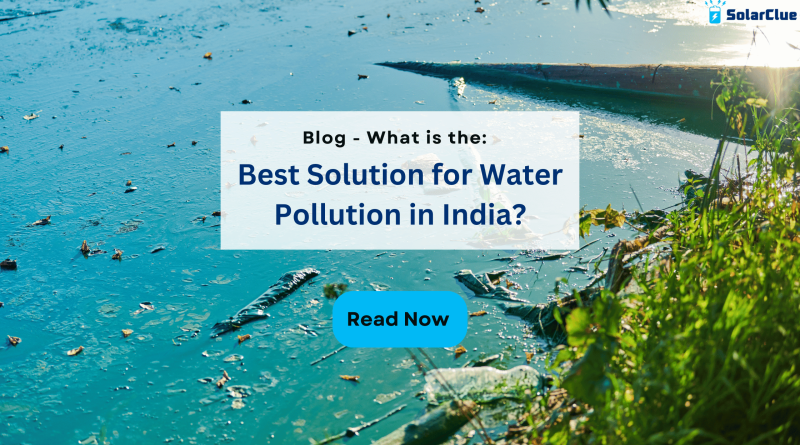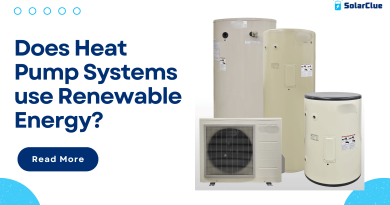What is the Best Solution for Water Pollution in India?
Water pollution in India is a big issue. It can have severe consequences for human health and the planet. We must all take steps towards reducing water pollution. To find effective solutions to combat water pollution in India is of utmost importance.
In this blog, we will discuss in detail the bad effects of water pollution, and how we can solve this problem. Let’s get started.
Table of Contents
What do you mean by water pollution?
Water pollution refers to the contamination of water bodies, such as rivers, lakes, and oceans, with harmful substances that can have bad effects on aquatic life, human health, and the environment. These pollutants can include industrial waste, sewage, agricultural runoff, and even household chemicals. Water pollution can lead to various health issues, including waterborne diseases, and can also disrupt entire ecosystems.
What are the sources of water pollution?
There are several sources that contribute to water pollution in India:
- Industrial waste: Many industries discharge untreated or partially treated effluents directly into water bodies, leading to the accumulation of toxic chemicals and heavy metals.
- Sewage and domestic waste: Improper disposal of sewage and domestic waste can introduce harmful bacteria, viruses, and other contaminants into water sources.
- Agricultural runoff: The excessive use of pesticides, fertilizers, and other chemicals in agriculture can lead to nutrient pollution and the contamination of nearby water bodies.
- Oil spills and leaks: Oil spills from ships, offshore drilling, and pipeline leaks can have devastating effects on marine life and coastal ecosystems.
- Electricity generation: The burning of fossil fuels for electricity production releases harmful pollutants into the air, which can eventually settle into water bodies.
How can we prevent water pollution?

Major steps need to be taken to reduce water pollution in India. Like Governments need to make policies, and industries need to adopt practices that can reduce water pollution. But these changes are in large scale. How can water pollution be prevented by individuals? This can be done by being responsible in choosing the appliances we use in our daily lives.
When we buy any electric device, we must not just look at the price or the brand. We must also see what effects it can have on the environment. Most devices in Indian households, like geysers, consume a lot of electricity. This leads to burning of fossil fuels, whose harmful pollutants settle in water. This water is very harmful for human health.
Instead of a geyser, you can buy a heat pump, which consumes only 75% less electricity, while efficiently meeting your daily hot water needs. As it needs less electricity to operate, it reduces the burning of fossil fuels to a great extent.
What is a heat pump and how does it work?
A heat pump is water heater just like a geyser. The main difference lies in the way it operates. A geyser uses direct electricity to heat water. But a heat pump uses electricity only to transfer the heat. There are mainly three components:
- Exhaust Fan
- Compressor
- Storage Tank
The exhaust fan draws in heat from the surrounding air, which is then compressed by the compressor, raising its temperature. This hot air is then circulated through a coil in the storage tank, transferring heat to the water inside. The process is repeated until the desired temperature is reached.
How can a heat pump help you reduce water pollution?
Heat pump systems contribute to reducing water pollution in two significant ways:
- Reduced electricity consumption: By consuming less electricity, heat pumps indirectly reduce the burning of fossil fuels for electricity generation. This, in turn, leads to a decrease in the release of pollutants into the air and eventually into water bodies.
- Longer lifespan: Heat pumps have a longer lifespan compared to traditional water heaters, which means they need to be replaced less frequently. This reduction in waste generation helps minimize the impact on the environment and water resources.
What are the other benefits of a heat pump water heating system?
In addition to the reduction in water pollution, heat pumps offer several other benefits:
1. Cost-effective
Heat pumps are highly energy-efficient, using only 75% of the electricity required by geysers. This translates into significant cost savings on your monthly electricity bills. Over the lifetime of the system, which can span up to 15 years, these savings can quickly offset the higher initial cost of the heat pump water heater, making it a cost-effective investment in the long run.
2. Manual temperature setting
Unlike geysers that have a fixed temperature setting, heat pumps allow you to manually adjust the water temperature to your preferred level. This feature not only ensures optimal comfort but also enables you to save energy by setting the temperature at a lower level when hot water is not immediately required. By tailoring the temperature to your specific needs, you can further enhance the energy efficiency and cost-effectiveness of the system.
3. Reduced water wastage
With traditional water heaters, you often have to run the tap for a while before hot water arrives, leading to significant water wastage. Heat pump systems, on the other hand, maintain a consistent water temperature in the storage tank, eliminating wastage of water. This not only conserves water but also helps you save on your water bills.
4. Positive environmental impact
Heat pump water heaters have a positive impact on the environment in several ways. First, by consuming less electricity, they indirectly reduce the burning of fossil fuels for electricity generation, which in turn reduces greenhouse gas emissions and air pollution. Additionally, their longer lifespan means less frequent replacements, resulting in reduced waste generation and a smaller environmental footprint.
5. Efficient in cold climates
Unlike popular opinion, heat pumps are designed to operate effectively even in colder climates. This is because they draw heat from the surrounding air, which remains relatively warm even when the outside temperature drops. This makes heat pump systems a viable and efficient option for various regions of India, including those that experience colder winters.
Conclusion
Heat pump is one of the best solutions as to how you can prevent water pollution. It is a big issue, and it is time for us to adopt such appliances, which will lead to a better future for the generations to come. It is now time for India to invest in a heat pump, for a sustainable future.
Visit SolarClue® to see the best heat pump water heaters. SolarClue® is an online marketplace where solar energy products are sold at discounts up to 50%.




